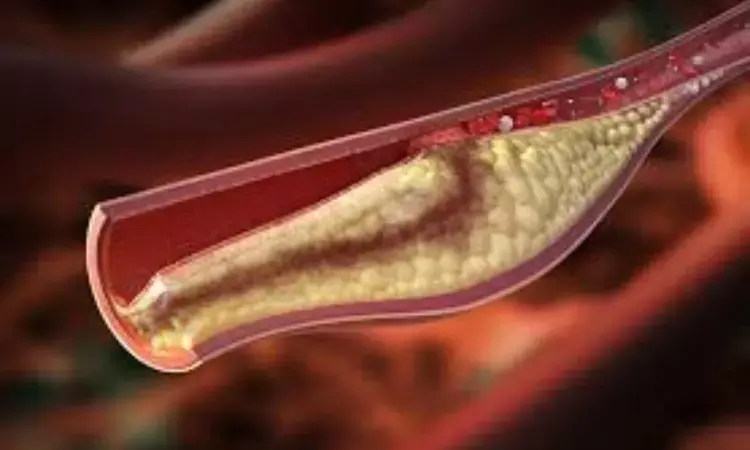- Home
- Medical news & Guidelines
- Anesthesiology
- Cardiology and CTVS
- Critical Care
- Dentistry
- Dermatology
- Diabetes and Endocrinology
- ENT
- Gastroenterology
- Medicine
- Nephrology
- Neurology
- Obstretics-Gynaecology
- Oncology
- Ophthalmology
- Orthopaedics
- Pediatrics-Neonatology
- Psychiatry
- Pulmonology
- Radiology
- Surgery
- Urology
- Laboratory Medicine
- Diet
- Nursing
- Paramedical
- Physiotherapy
- Health news
- Fact Check
- Bone Health Fact Check
- Brain Health Fact Check
- Cancer Related Fact Check
- Child Care Fact Check
- Dental and oral health fact check
- Diabetes and metabolic health fact check
- Diet and Nutrition Fact Check
- Eye and ENT Care Fact Check
- Fitness fact check
- Gut health fact check
- Heart health fact check
- Kidney health fact check
- Medical education fact check
- Men's health fact check
- Respiratory fact check
- Skin and hair care fact check
- Vaccine and Immunization fact check
- Women's health fact check
- AYUSH
- State News
- Andaman and Nicobar Islands
- Andhra Pradesh
- Arunachal Pradesh
- Assam
- Bihar
- Chandigarh
- Chattisgarh
- Dadra and Nagar Haveli
- Daman and Diu
- Delhi
- Goa
- Gujarat
- Haryana
- Himachal Pradesh
- Jammu & Kashmir
- Jharkhand
- Karnataka
- Kerala
- Ladakh
- Lakshadweep
- Madhya Pradesh
- Maharashtra
- Manipur
- Meghalaya
- Mizoram
- Nagaland
- Odisha
- Puducherry
- Punjab
- Rajasthan
- Sikkim
- Tamil Nadu
- Telangana
- Tripura
- Uttar Pradesh
- Uttrakhand
- West Bengal
- Medical Education
- Industry
Rosuvastatin notably reduces carotid intima-media thickness progression in subclinical atherosclerosis

China: In adults with subclinical atherosclerosis, 20 mg/d rosuvastatin significantly slowed the progression of carotid intima-media thickness (CIMT) over two years, a recent study has stated. The study appears in Stroke, the journal of the American Heart Association.
The researchers showed that rosuvastatin significantly reduced CIMT progression of the 12 carotid sites versus placebo (−0.0103 mm/y).
Globally, atherosclerosis is the frontrunner among causes of cardiovascular disease (CVD). Lipid-lowering (primary prevention) could avert atherosclerosis development. Carotid intima-media thickness is a well-validated measure of atherosclerosis used in intervention studies as the alternative endpoint and primary outcome for CVD events.
CIMT test measures the thickness of the inner and middle layers of carotid arteries. This can be helpful for doctors to know the extent of plaque buildup in arteries and diagnose carotid artery disease before the occurrence of symptoms. In healthy adults, IMT varies from 0.25 to 1.5 mm,24, and values >1.0 mm are often regarded as abnormal.
Rosuvastatin (Crestor) is a statin medication used for the prevention of cardiovascular disease in high-risk individuals and for treating abnormal lipids.
Against the above background, Yongjun Wang, Beijing Tiantan Hospital, Capital Medical University, China, and colleagues conducted a randomized, double-blind, placebo-controlled, multicenter, parallel-group study (METEOR-China Study) to assess the effects of rosuvastatin 20 mg/d versus placebo on CIMT progression over 104 weeks in Chinese individuals with subclinical atherosclerosis.
The annualized rate of change in the mean of the maximum CIMT measurements was taken 7× over the study period from each of the 12 carotid artery sites was the primary endpoint. CIMT changes at different artery sites and lipid-parameter changes were the secondary endpoints. A safety assessment was also done.
Patients were randomized in a ratio of 1:1 to receive rosuvastatin (n=272) or placebo (n=271). Baseline characteristics were well balanced between groups.
The study found the following:
- The change in the mean of the maximum CIMT of the 12 carotid sites was 0.0038 mm/y for the rosuvastatin group versus 0.0142 mm/y for the placebo group, with a difference of −0.0103 mm/y.
- For the CIMT secondary endpoints, the results were generally consistent with the primary endpoint.
- Rosuvastatin helped in clinically relevant improvements in lipid parameters.
- The authors observed an adverse-event profile consistent with the known safety profile of rosuvastatin.
The researchers conclude, "Rosuvastatin 20 mg/d significantly reduced the CIMT progression over two years in Chinese patietns with subclinical atherosclerosis and was well tolerated."
Reference:
Zheng H, Li H, Wang Y, Li Z, Hu B, Li X, Fu L, Hu H, Nie Z, Zhao B, Wei D, Karlson BW, Bots ML, Meng X, Chen Y, Wang Y; METEOR-China Investigators. Rosuvastatin Slows Progression of Carotid Intima-Media Thickness: The METEOR-China Randomized Controlled Study. Stroke. 2022 Aug 26:101161STROKEAHA120031877. doi: 10.1161/STROKEAHA.120.031877. Epub ahead of print. PMID: 36017704.
Dr Kamal Kant Kohli-MBBS, DTCD- a chest specialist with more than 30 years of practice and a flair for writing clinical articles, Dr Kamal Kant Kohli joined Medical Dialogues as a Chief Editor of Medical News. Besides writing articles, as an editor, he proofreads and verifies all the medical content published on Medical Dialogues including those coming from journals, studies,medical conferences,guidelines etc. Email: drkohli@medicaldialogues.in. Contact no. 011-43720751


